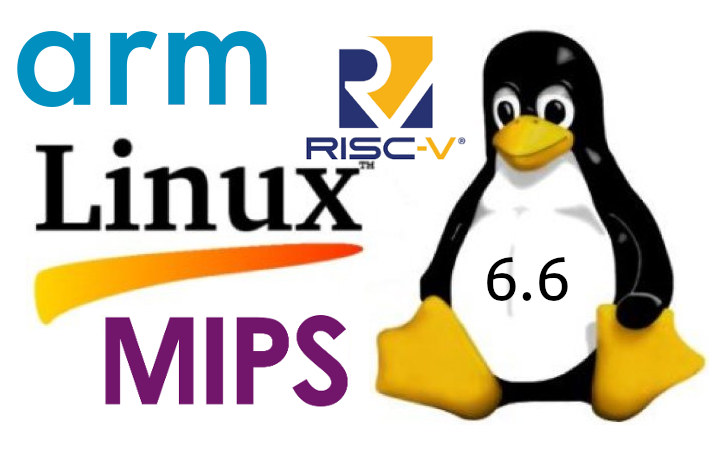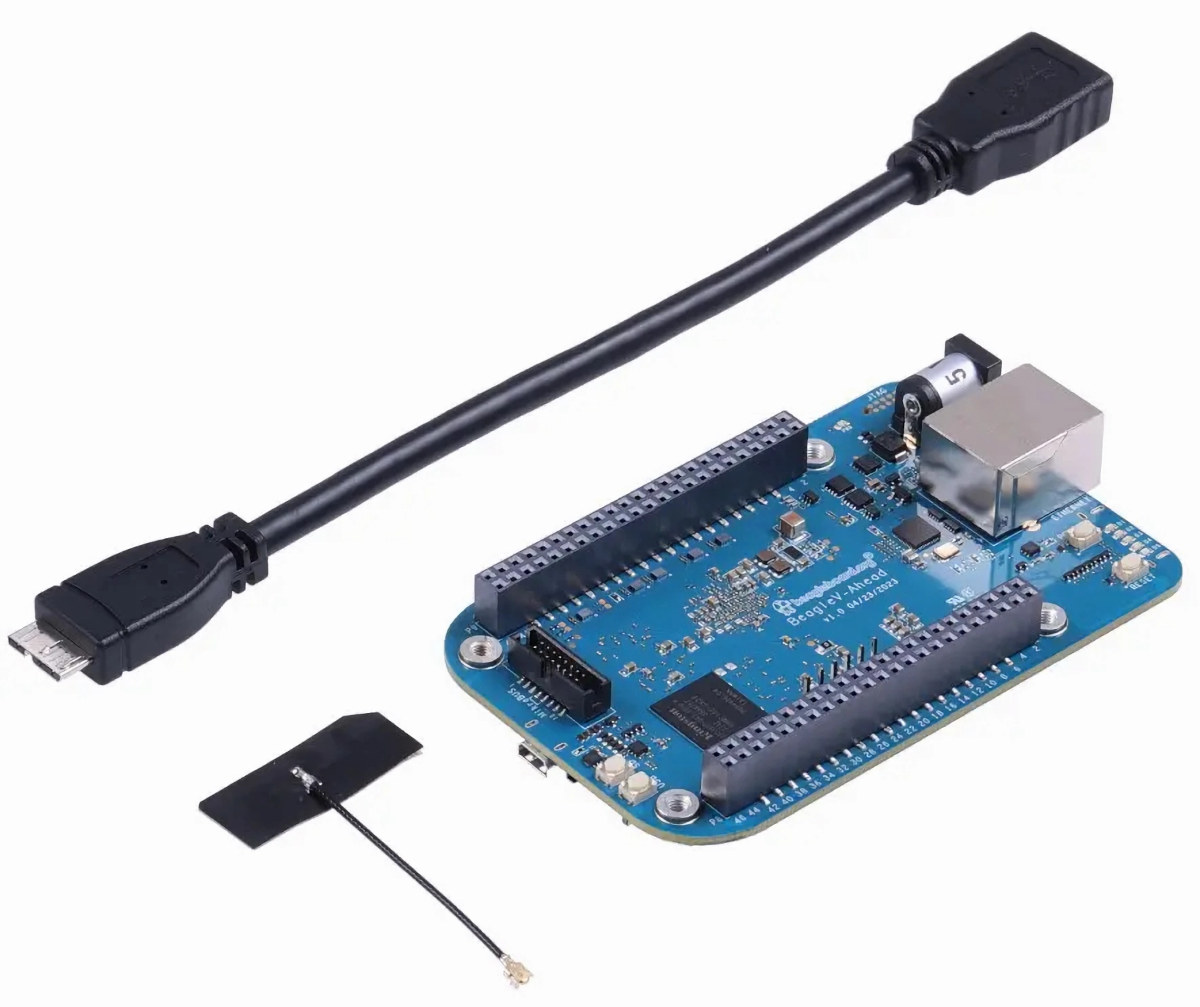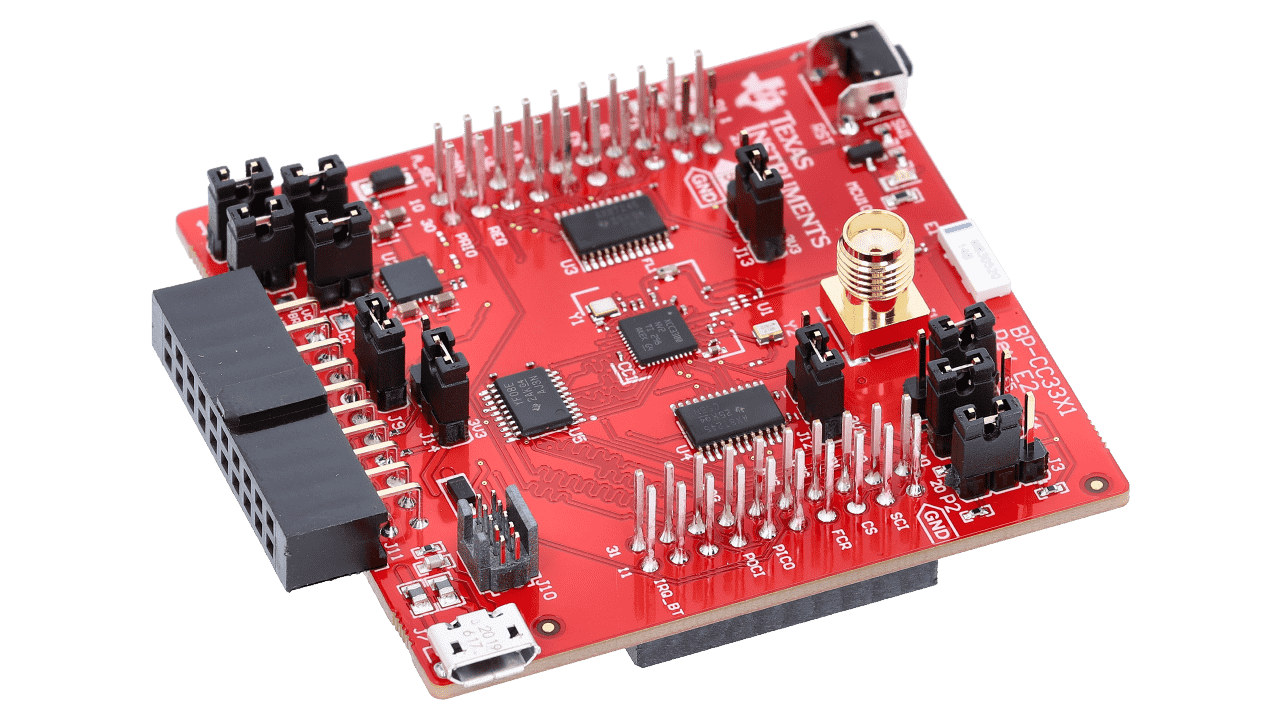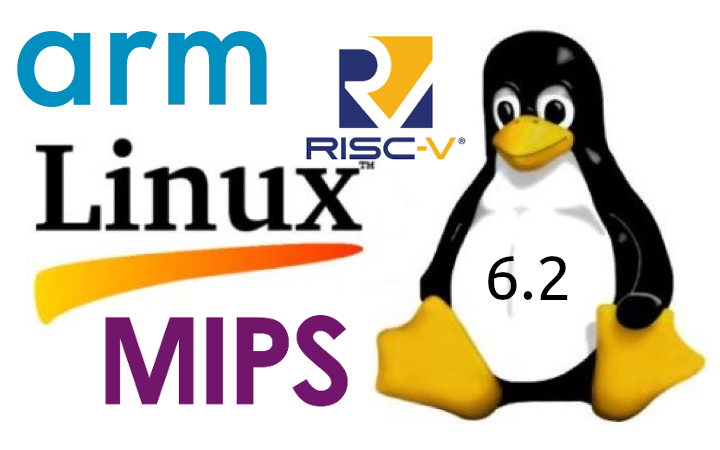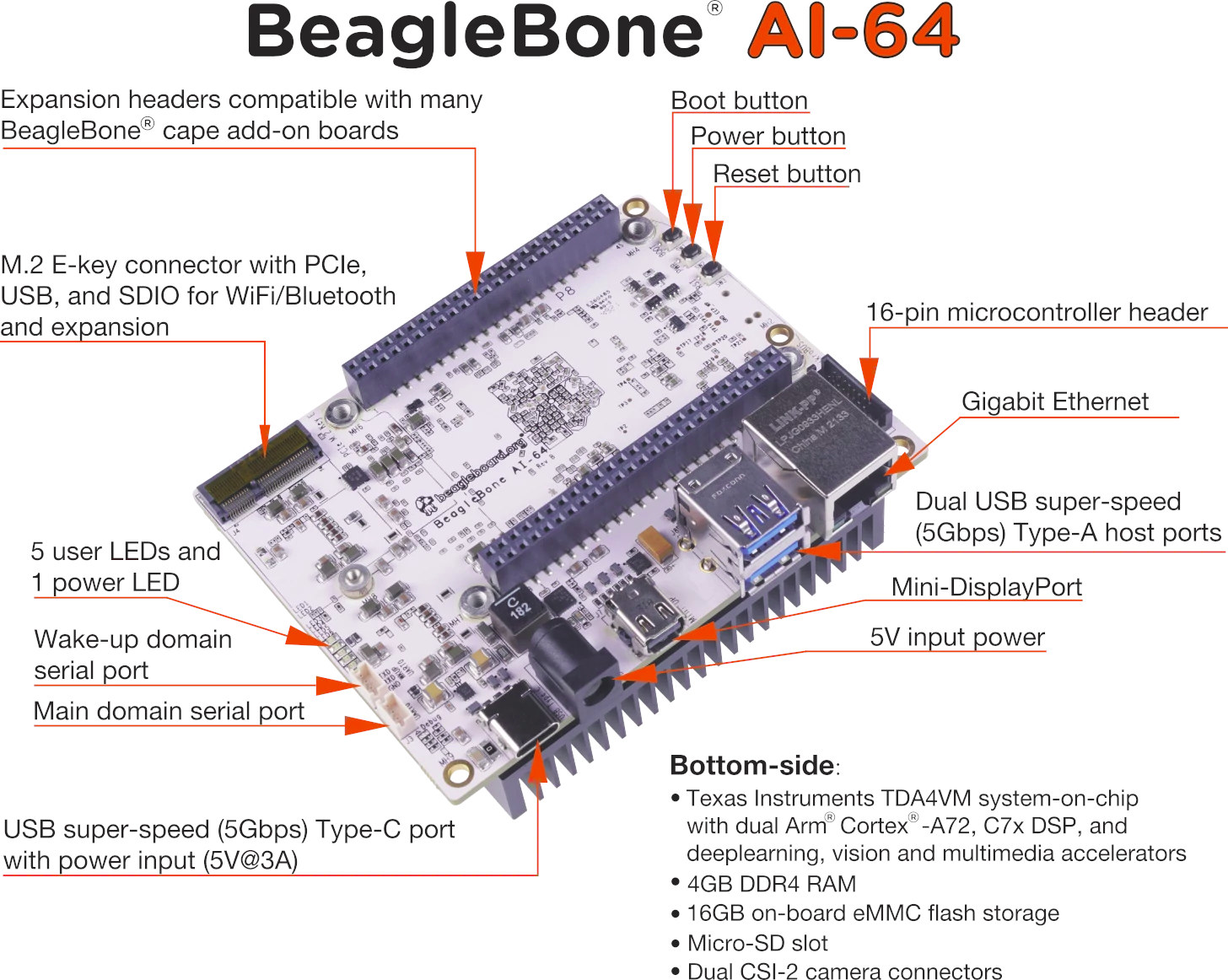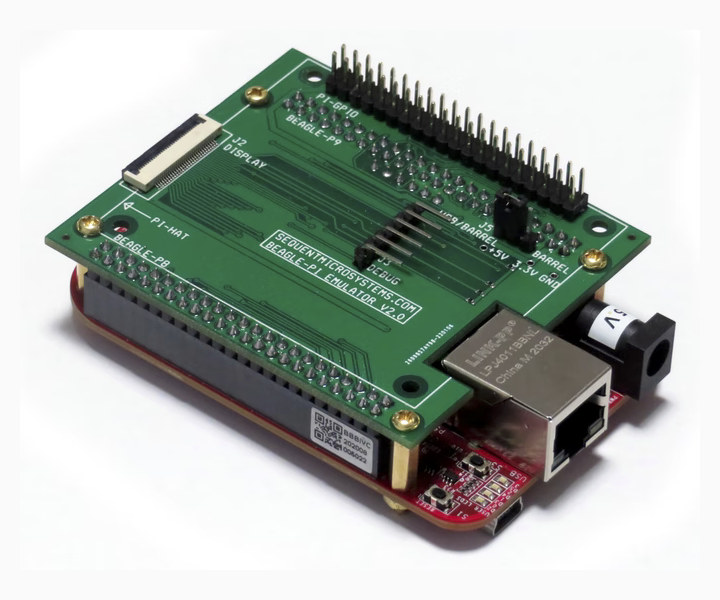The Linux 6.6 release has just been announced by Linus Torvalds on the Linux Kernel Mailing List (LKML): So this last week has been pretty calm, and I have absolutely no excuses to delay the v6.6 release any more, so here it is. There’s a random smattering of fixes all over, and apart from some bigger fixes to the r8152 driver, it’s all fairly small. Below is the shortlog for last week for anybody who really wants to get a flavor of the details. It’s short enough to scroll through. This obviously means that the merge window for 6.7 opens tomorrow, and I appreciate how many early pull requests I have lined up, with 40+ ready to go. That will make it a bit easier for me to deal with it, since I’ll be on the road for the first week of the merge window. Linus About two months ago, […]
BeagleV-Ahead quad-core RISC-V SBC offers BeagleBone Capes compatibility
Beagleboard.org Foundation’s BeagleV-Ahead is a single board computer powered by the T-Head TH1520 quad-core RISC-V processor and following the form factor of the popular BeagleBone Black board based on a Texas Instruments Sitara AM3359 single-core Arm Cortex-A8 processor. The new board looks better in almost every way with a much faster processor, 4GB RAM, 16GB eMMC flash, Gigabit Ethernet, built-in WiFI and Bluetooth, a micro USB 3.0 port, micro HDMI video output up to 4Kp60, etc… and the same 80-pin headers as found on other BeagleBone boards. The main downside is that it comes at a significantly higher price as we’ll see further below. BeagleV-Ahead specifications: SoC – Alibaba T-Head TH1520 CPU – quad-core RISC-V Xuantie C910 (RV64GCV) processor @ up to 2.0 GHz, low power Xuantie E902 core GPU – Imagination BXM-4-64 GPU with OpenGL ES 3.2, OpenCL 2.0, Vulkan 1.2, 50.7GFLOPS DSP – Xuantie C906 audio DSP @ […]
TI launches Simplelink CC3300/CC3301 WiFi 6, Bluetooth 5.3 LE companion IC for IoT applications
Texas Instruments has unveiled the SimpleLink CC33xx family of Wi-Fi 6 companion IC with optional Bluetooth 5.3 Low Energy designed to be connected to a microcontroller (MCU) or a microprocessor (MPU) for secure and power-efficient IoT devices, The SimpleLink CC3000 supports 2.4 GHz WiFi 6, and interfaces over SDIO, SPI, and/or UART to the host system, while the SimpleLink CC3301 also adds support for Bluetooth 5.3 LE. Both chips can operate in high-temperature environments up to 105ºC. Texas Instruments CC3300/CC3301 specifications: Wireless 2.4 GHz WiFi 6 (802.11ax) up to 50 Mbps; Support for TWT and OFDMA, multirole (Access Point and Station) CC3301 only – Bluetooth 5.3 Low Energy up to 2 Mbps WiFi and Bluetooth COEX Host interface – 4-bit SDIO or SPI, and UART to external MCU or MPU Security – FW authentication and anti-rollback protection, WPA2/WPA3, Secured host interface Pacakge – 40-pin QFN package (5×5 mm) Temperature range […]
Linux 6.2 release – Main changes, Arm, RISC-V, and MIPS architectures
Linux 6.2 has just been released with Linus Torvalds making the announcement on LKML as usual: So here we are, right on (the extended) schedule, with 6.2 out. Nothing unexpected happened last week, with just a random selection of small fixes spread all over, with nothing really standing out. The shortlog is tiny and appended below, you can scroll through it if you’re bored. Wed have a couple of small things that Thorsten was tracking on the regression side, but I wasn’t going to apply any last-minute patches that weren’t actively pushed by maintainers, so they will have to show up for stable. Nothing seemed even remotely worth trying to delay things for. And this obviously means that the 6.3 merge window will open tomorrow, and I already have 30+ pull requests queued up, which I really appreciate. I like how people have started to take the whole “ready for […]
BeagleBone AI-64 SBC features TI TDA4VM Cortex-A72/R5F SoC with 8 TOPS AI accelerator
BeagleBone AI-64 is a single board computer (SBC) powered by a Texas Instruments TDA4VM dual-core Cortex-A72 + hexa-core Cortex-R5F processor which also embeds an 8 TOPS AI accelerator, plus three DSP, as well as plenty of I/Os that makes it ideal for advanced AI industrial applications. It follows the BeagleBone-AI SBC launched in 2019, but with much higher specs including a 64-bit Arm processor, 4GB RAM, three USB 3.0 ports, an M.2 E-Key socket with PCIe, USB and SDIO, plus the usual expansion headers that keep compatibility with existing BeagleBone cape add-on boards. BeagleBone AI-64 specifications compared to BeagleBone-AI and BeagleBone Black boards: Another notable change is that a mini DisplayPort has now replaced the micro HDMI port found in earlier boards. The TDA4VM SoC comes with many co-processors, so it will be interesting to see how well those are supported in the software. BeagleBoard.org provides Debian 11.3 with […]
Beagle-Pi Emulator is a Raspberry Pi HAT adapter for BeagleBone Black (Crowdfunding)
We recently reported the Raspberry Pi boards were getting really expensive due to a lack of supply, and the problem has gone on for while without a clear idea when the issue will be resolved. This does not help Raspberry Pi HAT manufacturers, and for instance, Sequent Microsystems has made Raspberry Pi HATs over the years most models with multiple relays, but also others for temperature sensors, and others automation applications. One solution would be to use compatible boards like ODROID-C4 or Rock64, but Sequent Microsystems found out the BeagleBone Black Industrial was well-stocked by various distributors, and instead, they designed the “Beagle-Pi Emulator” adapter to use Raspberry Pi HAT on the Texas Instruments Sitara AM3358 board. An adapter is needed because the BeagleBone Black boards are equipped with two 46-pin headers instead of the 40-pin header on Raspberry Pi SBC’s. The expansion board routes I2C, SPI, four serial […]
PicoVoice offline Voice AI engine gets free tier for up to 3 users
PicoVoice offline Voice AI engine has now a free tier that allows people to create custom wake words and voice commands easily for up to three users on any hardware including Raspberry Pi and Arduino boards. I first learned about PicoVoice about a year ago when the offline voice AI engine was showcased on a Raspberry Pi fitted with ReSpeaker 4-mic array to showcase the company’s Porcupine custom wake word engine, and Rhino Speech-to-Intent engine. The demo would support 9 wake words with Alexa, Bumblebee, Computer, Hey Google, Hey Siri, Jarvis, Picovoice, Porcupine, and Terminator. More importantly, the solution allows you to easily create your own custom words in minutes from a web interface by simply typing the selected wake word, with no need for hundreds of voice samples or waiting weeks to get it done. So I tried “Hey You” first, but I was told it was too short, […]
Picovoice Cobra Voice Activity Detection Engine shown to outperform Google WebRTC VAD
Picovoice Cobra Voice Activity Detection (VAD) engine has just been publicly released with support for Raspberry Pi, BeagleBone, NVIDIA Jetson Nano, Linux 64-bit, macOS 64-bit, Windows 64-bit, Android, iOS, and web browsers that support WebAssembly. Support for other Cortex-M and Cortex-A based SoCs can also be made available but only to enterprise customers. Picovoice already offered custom wake word detection with an easy and quick web-based training and offline voice recognition for Raspberry Pi, and even later ported their voice engine to Arduino. Cobra VAD is a new release, and, like other VADs, aims to detect the presence of a human voice within an audio stream. Picovoice Cobra can be found on Github, but note this is not an open-source solution, and instead, libpv_cobra.so dynamic library is provided for various targets, together with header files and demos in C, Python, Rust, and WebAssembly, as well as demo apps for iOS […]


